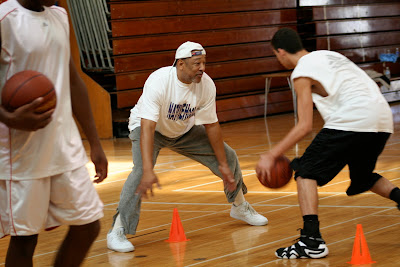389. Playing together, winning together

This is one chapter of my book on TEFL/TESL/ELL. It is what somehow experienced teacher writes to a rookie, novice one. Photo thanks to contralatanca files wordpress com A hockey game Bulgary vs Spain. Here is a minority sport. *** 3. Aunar fuerzas proporciona una enorme potencialidad... *** Unas ocurrencias sobre el trabajo de los profesores en equipo , como miembros de un seminario o departamento. Y unos recuerdos prácticos, por si te sirven. Tampoco había pensado colocar este factor de éxito en enseñanza y aprendizaje, tan pronto en el desarrollo del libro. Pero creo que está bien situado ahora entre los factores de éxito en aprender un idioma; piensa en la importancia, para el profesor, de la inteligencia emocional al trabajar en equipo: el profesor es la primera fuente de recursos en el aula y el motor de la clase y como un director de orquesta. *** El equipo puede aunar profesores y sus fuerzas, y coordinar la materia de los distintos cursos en la asignatura de inglés. Bien l...






















